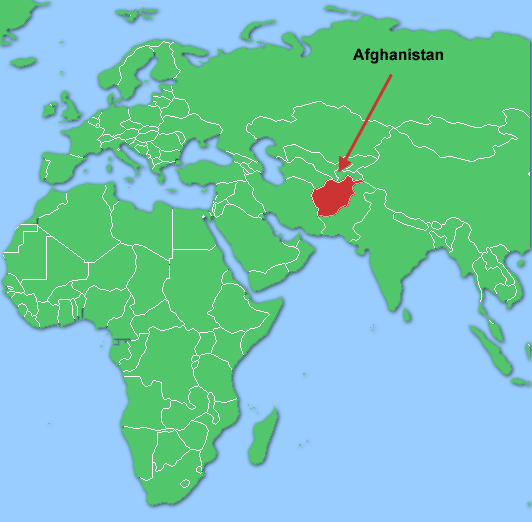
Circle the area on this map

D. The Islamic fundamentalist Taliban ruled Afghanistan from 1996 until 2001, and it provided a safe haven for leaders of the Al-Qaeda terrorist group that attacked the United States on Sept. 11, 2001. After U.S. demands to turn over Al-Qaeda leaders were denied, a U.S.-led NATO force attacked Afghanistan and the Taliban was forced from power.
B. Afghanistan is bordered by Pakistan in the south and east; Iran in the west; Turkmenistan, Uzbekistan, and Tajikistan in the north; and China in the far northeast. While the Pakistani government originally trained and backed the Taliban to fight in Afghanistan, it has fought Taliban forces inside Pakistan in recent years.
D. Saudi Arabia was a major backer of both the mujahideen and Taliban and was one of only three nations to recognize the Taliban regime. A former Pakistani prime minister said that western countries, chiefly United States and United Kingdom, had given aid of about $20 billion during the 1980s to Pakistan specifically for training Taliban personnel and providing them with arms and ammunition.
A. Saudi Arabia's rival Iran supported Shia forces fighting the Taliban, who follow an extremely strict version of Sunni Islam that considers all Shia to be heretics. Many Taliban leaders were trained in Pakistan religious schools funded by the Saudis who espouse the fundamentalist sect. Terror groups including Al-Qaeda and the Islamic State share the fundamentalist version of Islam.